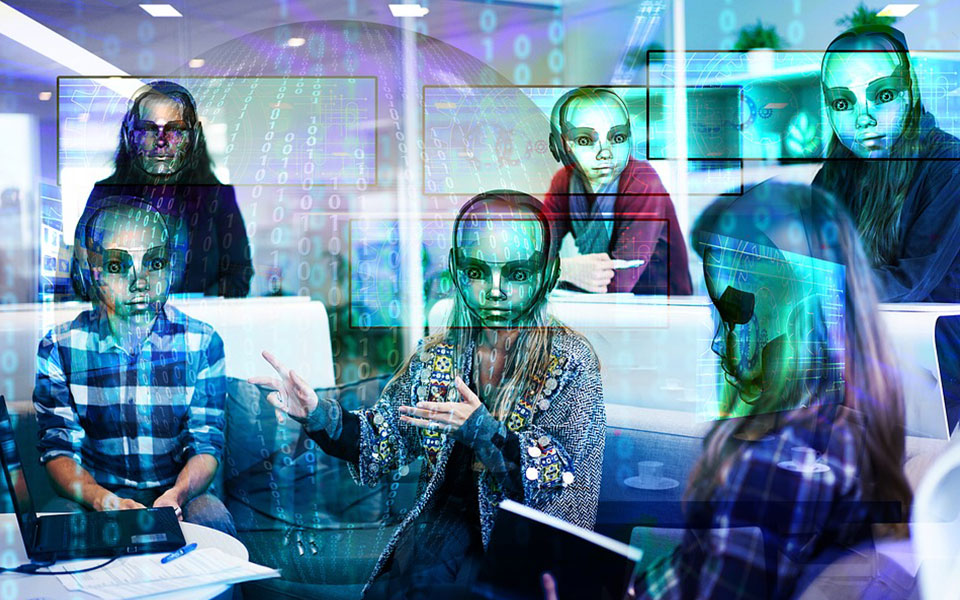Although the successful progress of Artificial Intelligence in today’s society is clear, people continue to fear its takeover.
Developers and start-ups excitedly showcase incredibly advanced technologies that are expected to ease our daily work grind; and yet, people remain dubious.
It’s clear to see that people do not like change. And more aptly – people do not like change that affects them directly. Fair enough. But is rejecting AI going to change its formidable takeover?
What People Fear About AI
There are many reasons that people fear artificial intelligence, but the clear apprehension lies in those reasons that directly affect them – more specifically, their jobs.
1. Fear of Job Losses
This is, by far, the biggest fear that people have about Artificial Intelligence. People are afraid that AI will take over their jobs, making them redundant in the process and resulting in industry-wide job losses.
2. Dehumanised Interactions
There is a big pushback in handing over tasks to artificial intelligence tools for fear that robotics will dehumanise our interactions.
Overcoming the Threat that is AI
Now, I could simply tell you that fearing AI is a pointless exercise, but I won’t. Fear is an emotion brought about a perceived threat. It’s as real as day, and so we need to address that.
Artificial Intelligence is not going to take over.
Let me explain.
Let’s go through those fears again.
1. Fear of Job Losses
It will be remiss of me gloss over the fact that AI will result in job losses, so I won’t.
Let’s talk about that.
It is true that machines and robotics are programmed to take over the mundane and repetitive tasks of our jobs. Now, taking those tasks away from us will allow us to focus on more important activities, adding value to our services.
Let’s take recruiters for example.
A recruiter’s success is measured by the number of placements they make in any given day, week, month, and year. Now, think about how much time a recruiter spends each day just going through CVs and screening candidates. Or perhaps, the number of hours they spend organising payroll and leave balances.
It’s a race against time.
Okay, let’s say your recruiter has a Candidate Manager. The Candidate Manager now fears that the robots will take over their job. The Candidate Manager after all is responsible for screening and going over new applications. Fair enough, right?
Handing over that task to the machines now gives the Candidate Manager a chance to upskill and move a step up in their career.
AI powered HR Bots have the capability to take all that sifting and screening away from recruiters; thus giving them lead time to actually engage with their candidates and clients.
Imagine how much more productive humans can be when the repetitive tasks are given to the robots.
Yes, AI will result in job losses; but we need to alter our thinking on this because it’s not all doom and gloom. Where there are losses, there will also be gains.
2. Dehumanised Interactions
Just because a robot takes over a specific task that a human would have once been responsible for; it does not mean that interactions are dehumanised.
Think about payroll, as an example.
As it is, if a candidate wants a copy of their payslip emailed to them – perhaps they lost it or deleted it by accident – they would then have to get in touch with their consultant and ask for it. Correct?
The consultant then gets in touch with the Payroll & Finance team to get a copy, which they will then email on to the candidate once received.
Now, this activity alone has several human interactions involved. But is this really the best use of our time; and is there truly a need for human interaction for this activity?
Okay, now imagine that this function of payroll and payslips is passed on to robots.
The less of this activity a recruiter has to do, the more time they have to spend with actual people sharing higher level conversations.
Does this not address our fear of dehumanised interactions?
The implementation of Artificial Intelligence in HR and Recruitment gives you more time and allows you to better communicate with your clients and candidates.
Altered Thinking
I appreciate why the fear of redundancy does not inspire enthusiasm or even acceptance of AI technology in HR and Recruitment; however seeing the success behind its implementation in the workplace deserves some level of excitement.
AI machines are programmed to learn from trends and experience; and no doubt learn at a pace far quicker than any human. But remember this – there are far more things that artificial intelligence cannot and may never do.
Humans are driven by creativity, passion, and meaningful relationships; and these are intangible soft skills.
It is time to alter our thinking and work with the progress that is before us.
Instead of focusing on what robots will take away from us, we should instead focus on what they can’t – and work to upskill ourselves in those areas to maintain our valuable relevance in the workplace.

